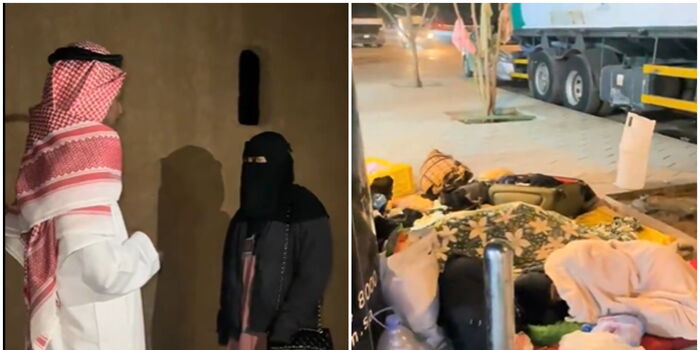A Kenyan man known as Kiongozi has allegedly been arrested in Saudi Arabia after exposing the plight of stranded Kenyan workers in the country. Kiambu Senator Karungo wa Thang’wa confirmed the arrest, revealing that Kiongozi had previously received threats for highlighting the struggles of Kenyans, mostly mothers, left homeless in Riyadh.
According to Senator Thang’wa, Kiongozi was among those he visited during his recent trip to Riyadh, which uncovered several cases of stranded Kenyans who had been forgotten by both the Kenyan and Saudi governments. The threats reportedly warned Kiongozi of dire consequences, including “surgery,” if he continued exposing these issues.
Screenshots shared by Thang’wa on social media showed messages warning against politicians highlighting the negative cases of homeless Kenyans in Saudi Arabia. Thang’wa emphasized that the threats came from a Saudi businessman with ties to Kenya.
The senator called on Kenyans to pay attention to the situation and advocate for the safety and rights of their compatriots abroad. “This is the reality our people face when they dare to speak out,” he said.
Recent reports indicate that many Kenyan mothers in Saudi Arabia are stranded due to administrative delays at the Kenyan Embassy, especially when trying to process DNA tests for children born in the country. One notable case involves a mother from Vihiga County, living on the streets with her eight-year-old child, whose DNA results have been pending for three years.
A New York Times investigation highlighted that unwed Kenyan women giving birth in Saudi Arabia often face legal challenges, as Islamic conservatory laws may consider these births unlawful. Some of these women reportedly suffer abuse from employers, leaving them trapped without identification or the ability to leave the country.
Despite these reports, the Kenyan government continues to deploy workers to Saudi Arabia for domestic jobs, where they often face poor pay and challenging conditions. Human rights advocates are calling for urgent action to protect these vulnerable workers.

